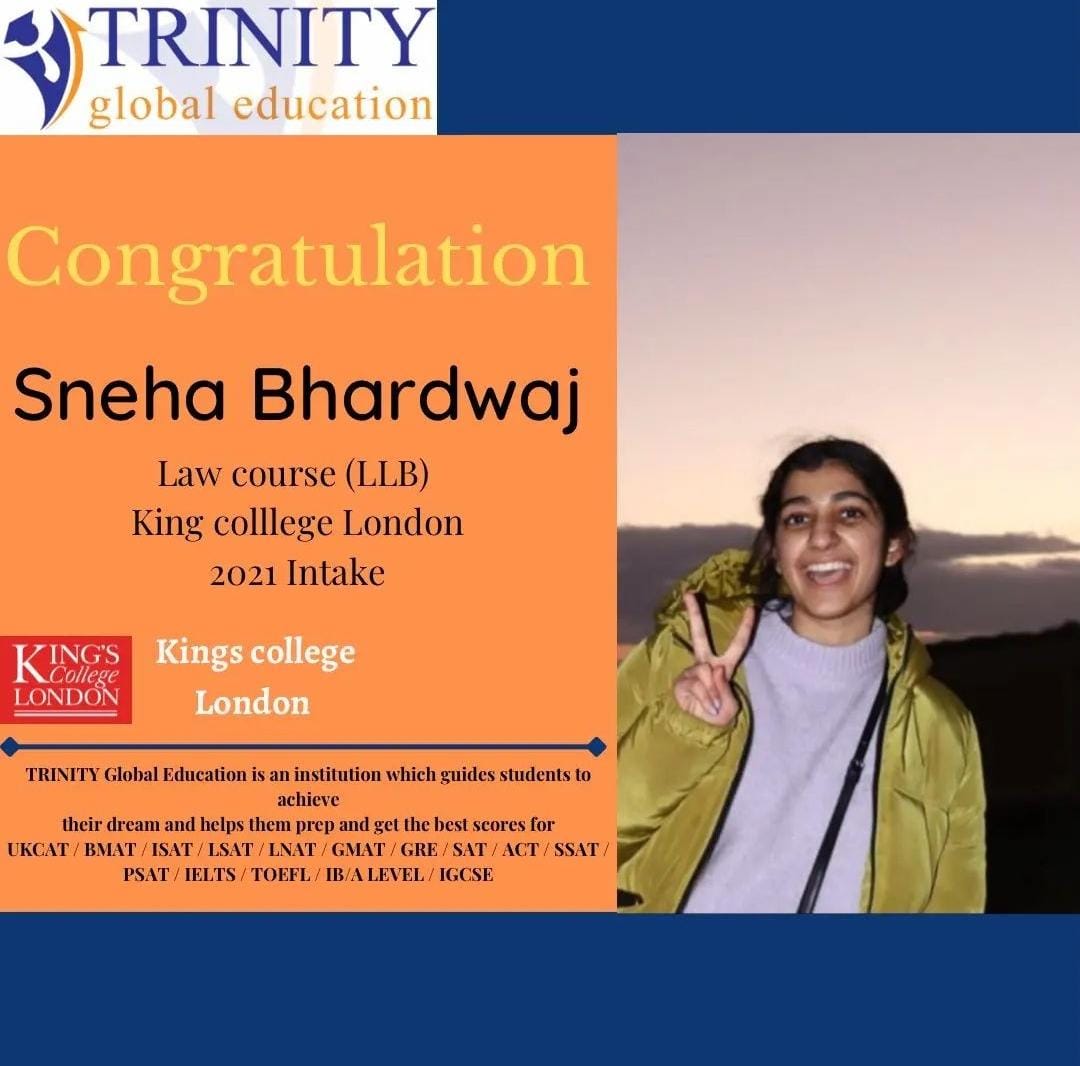Best Online LNAT Coaching & Classes
For Test Preparation In India
Tailored Guidance for LNAT Test Preparation in India
By enrolling in the Best Online LNAT Classes For Test Preparation, you will receive personalized support from our LNAT Tutors. we have a Comprehensive revision plan that addresses every section of the LNAT exam and targets individual weaknesses. Designed especially for students who are seeking LNAT test preparation online.
Mastering the LNAT: Effective Tips and Techniques
Through our Best Online LNAT Classes For Test Preparation, we have developed a comprehensive set of LNAT strategies that have been refined over a decade. Over the course of 10 years, we have perfected our LNAT strategies in order to effectively approach all 5 LNAT sections. Our LNAT coaching in India incorporates proven tips and techniques that enhance LNAT timing and boost overall performance.
Proficient LNAT Coaches in India
Experience the best in LNAT coaching in India through our top-notch LNAT Tutors. They scored in the top 10% of the exam and have successfully guided hundreds of students in our Best Online LNAT Classes For Test Preparation. Gain valuable LNAT tips and techniques through personalized 1-1 LNAT Tutoring, all conveniently available for LNAT test preparation online.
Effective Strategy Coaching
Enroll in our Best Online LNAT Classes For Test Preparation in India to receive guidance from our expert tutors. They will equip you with trusted strategies that have empowered countless test-takers to achieve score improvements. Experience the convenience of LNAT coaching online and unlock your full potential in LNAT test preparation.
Flexible Online LNAT Course
Discover the ultimate convenience with our Best Online LNAT Classes For Test Preparation in India. Our self-paced Online Course is designed to provide exceptional value and flexibility. Whether you prefer interactive live sessions or one-on-one engagement, our LNAT Courses cater to your needs. You can raise your hand (digitally) and ask questions at any point, ensuring an engaging learning experience. Experience the freedom of our self-paced Online Course, allowing you to study at your own pace for LNAT test preparation online.
Ace the LNAT with 1-1 LNAT Test Preparations with TRINITY GLOBAL EDUCATION Experts.
HOW TRINITY GLOBAL EDUCATION PLAYS A VITAL ROLE IN YOUR LNAT EXAM PREP & APPLICATION?
- Trinity Global Education, a renowned LNAT coaching provider in India, takes pride in its highly experienced trainers who are dedicated to ensuring your success.
- With our expertise in the latest testing trends and strategies, we deliver top-quality personalized tutoring.
- At Trinity Global Education, our team of engaging test prep specialists is committed to simplifying the path to cracking competitive tests for our students.
- We understand the significance of LNAT scores in securing admission to top medical universities, and our aim is to help you achieve the best score and guide you toward your dream university.
- Experience the best online LNAT classes for test preparation with Trinity Global Education and set yourself up for success in LNAT test preparation online.

REASONS TO JOIN TRINITY GLOBAL EDUCATION - Best Online LNAT Classes For Test Preparation in India
- Our personalized One on One service is available throughout the world.
- Our Trainers help you prepare for the LNAT test & pay personal attention so that our students achieve the best scores.
- We conduct Mock tests to understand the progress of our students.
- Mock tests also helps the student understand the test pattern & gives the student a feeler of the LNAT testing system.
- Online Tutoring – Live Tutoring One on One Tutoring
Private Online Coaching
- Live Sessions – Customized Sessions
- Exhaustive Courseware to crack LNAT
- Mock Tests & LNAT Portal Access
- Sectional Mocks
- Unlimited Doubt Clearing Sessions
- The course consist of all the sections of the exams.
- Verbal Book
- Test Series
- Practice Sessions
- Study Material for all the sections of the entrance exam.
- We offer you flexible timings for your classes as per the availability of the schedule.
- The total number of hours for training is flexible and also depends upon the students requirement & trainer’s suggestion.
- After a detailed discussion with the student our experienced trainers will suggest you the required number of hours to complete your LNAT preparation course.
- Solving test papers is the best practice & will help the student & the trainer understand each other better.
- Unlimited test paper solving will assure that our students achieve the highest scores & get into their dream university.
- We offer unlimited doubt solving sessions.
- Success of our students & getting our students into top school is our goal which we assure to achieve together.

LNAT TEST DETAILS
The National Admissions Test for Law or LNAT, is an admissions aptitude test that was adopted in 2004 by eight UK university law programs as an admissions requirement for home applicants. The LNAT is used by universities to help them select people for their undergraduate law courses. The test doesn’t test your knowledge of law or any other subject. Instead, it helps universities assess your aptitude for the skills required to study law. The content of the LNAT is managed by the members of the LNAT Consortium. The test itself is administered by Pearson VUE, under contract to LNAT. The LNAT helps universities make fairer choices from the many highly-qualified applicants who want to join their undergraduate law programmes. It is used in collaboration with other admissions processes such as UCAS application and academic qualifications.
WHICH UNIVERSITIES TAKE LNAT?
You should aim to take the test as early in the academic year as possible for maximum choice of test venue and availability, & to meet admissions deadlines.You must take the test in the UCAS year in which you are applying to university. You can only sit the test once in the cycle (September to June) & results cannot be carried over from one year to the next.
WHICH UNIVERSITIES TAKE LNAT?
The LNAT is a 2¼ hour test in two sections
Section A
This section consists of 42 multiple choice questions.The questions are based on 12 argumentative passages, with 3 or 4 multiple choice questions on each.You will be given 95
minutes to answer all of the questions.You’ll be able to review your answers at any time during the 95 minutes, but you will not be able to return to the multiple choice section once you begin Section B.
Section B
In section B, you will have 40 minutes to answer one of three essay questions on a range of
subjects to demonstrate your ability to argue economically and to come to a
conclusion. You will need a good command of written English.
WHICH UNIVERSITIES TAKE LNAT?
Both your LNAT score and essay are made available to the participating universities. These are then used to supplement your university application and show your aptitude for studying undergraduate law.
WHICH UNIVERSITIES TAKE LNAT?
You need to take the LNAT during the September 2018 to June 2019 test cycle if you are applying for 2019 entry(or deferred entry in 2020) to any of the following UK undergraduate law programs (listed by university and UCAS code).You must also read the information about deadline dates for the universities. As well as taking the LNAT, you need to apply for your chosen programs in the normal way.Sitting the LNAT does not constitute an application to any universities. The LNAT must be taken by all applicants (UK, EU and overseas) to undergraduate law programs at
WHICH UNIVERSITIES TAKE LNAT?
LNAT Frequently Asked Questions
Who should take the LNAT
When to take the LNAT
No. You must take your LNAT and submit your UCAS form during the same cycle. If you are applying to UCAS in 2022-2023 you must also take the LNAT during the 2022-2023 testing year. This begins on 1 September 2022. If you take the LNAT in an earlier testing year your result will not be downloaded by the universities and you will have to take the LNAT again at the correct time.
It does not matter if you take the LNAT before or after you send off your UCAS application.
No. If you are reapplying through UCAS this year, you must also take the LNAT again this year. Results are not carried over from one year to the next.
Your application will be rejected. You will have to apply again the following year, and take the LNAT then.
You must still take the LNAT. If you will not be at home before the relevant deadline, you must register to take the LNAT before the relevant deadline in the country where you are working or travelling. There are test centres all over the world. Pearson’s test centre locator.
Yes. Since you are applying in the 2022 -2023 admissions round, you must take the LNAT in 2022-2023.
Follow this link to Timescales and Deadlines.
Test Results
No. You will receive an LNAT result (a score out of 42) and the university will refer to this when processing your university application.
When you get your result depends on when you sat your test. See Results for further information. You can make sure you receive your result on time on time by checking that the email address you have given in your LNAT Profile is accurate. Follow this link to log in and update your profile. You should also make sure that your account is working and your inbox is not full. If all is in order then you should check your spam or junk mail folder. If your result is not there contact us using the form.
You don’t send the result or the essay yourself. The universities download your result and essay automatically on the basis of information supplied by you. You must enter your UCAS personal identifier number (ten digits) at the time of registration. This allows your result and essay to be transmitted to the universities to which you apply on your UCAS form. The burden is on you to enter this information accurately and to keep your LNAT Profile up to date. Neither LNAT, the test operators nor the universities are responsible for chasing results that are not listed correctly because of your errors in entering information on the system.
No. You may only sit the LNAT once between 1 September 2022 and 31 July 2023. If you try to sit it twice, the later sitting will be automatically invalidated and the later result will be void. To have another shot at the LNAT, you would have to re-apply to university in the next admissions year.
If you have any examination access requirements related to disability or illness, these must be notified at the time of registration, so that suitable provision can be made. If you did not tell us about your examination access requirements (so that provision was not made), or if you merely sat the test in adverse circumstances (e.g. you were unwell or distressed), then any allowance in the interpretation of your LNAT result is between you and the universities to which you have applied. Your result will not be adjusted by the LNAT Consortium or Pearson VUE. More on examination access requirements.
Follow this link to Results.
The Test Centre
You can select the most convenient test center for you by using the live Pearson VUE test center locator. Follow this link.
If you are delayed by less than 15 minutes, the test centre staff have a discretion to let you start late. But the risk of late arrival is yours: if you are more than 15 minutes late, or the test centre staff judge that a late start would be disruptive to other candidates, you will be recorded as a no-show. If you are a no-show, you will need to book another test and pay again. Before you set off for your test, make a note of the centre’s address and find it on the map.
We allow you to reschedule your test appointment at no extra charge up to 12 noon (UK time) two working days before your existing appointment. But after this point we provide no insurance cover for the cost of missed tests. If you have to miss your test for any reason, and you did not reschedule in time, you will have to book another test at your own expense.
Yes, this applies in case of illness, family emergency, accident, arrest, siege, train failure and security alert as well as forgetfulness. It also applies to those who arrive at the test centre late and those who arrive with inadequate ID. Candidates who booked their test with a bursary cannot apply for a second bursary to cover the cost of rescheduling: candidates are allowed only one bursary per test cycle. For more information on ID click here.
No. Test centre staff have no discretion to waive any LNAT rules or policies. They cannot make changes to your LNAT registration file and they cannot give any LNAT advice. They cannot meet any requests for modifications to the onscreen test or the testing environment except those that were agreed at time of registration (using the Examination Access Requirements form). If you cannot find the answer to your question on the LNAT website, submit a query using our contact form.
Follow this link to Test Centers.
Identification Documents
No. The test centre will only accept the forms of photo identification listed on this website.
If at all possible you should present a valid passport. If the only form of ID you have is a Home Office ID Card please contact the LNAT Administrator at least two weeks before your test so that we can make arrangements for your card to be accepted by the test centre. If you present your Home Office ID Card without having first notified the LNAT Administrator the Test Centre will not be able to admit you and you will have to rebook your test at your own expense. If you have any queries or are not sure what you should do contact the LNAT Administrator as soon as possible.
Follow this link to Identification.
During the Test
If you need any assistance during your test you should request this by raising your hand. Remember that the invigilators are there to help you and will respond as quickly as possible. So, if you need another erasable note board or pen, or would like to use some ear plugs, or someone is making an unreasonable amount of noise, or you aren’t sure about something – even if test centre staff have already explained it to you – put up your hand and ask for help. If you do not ask test centre staff to remedy an issue when it arises there is very little we can do about it later. See also our Complaints Policy.
No. There is a portable whiteboard and pen in your workstation area for your personal use during the test.
No, since the member law schools’ courses are taught in English, the test is only available in English.
No. No books or papers may be taken into the test room.
Practice Test
Online practice test
You can access this test with your browser and it will run on any computer. There is no limit on the number of times the sample test can be taken. https://lnat.ac.uk/lnat-sample-test
It is an onscreen simulation of the LNAT. It is a simulation of the real LNAT exactly as it will appear on-screen at the test center. You can use it to familiarize yourself with the format of the test and the skills it requires.
Guided Tour of LNAT Test Screen.
The best way to familiarize yourself with the system is to try out our two practice tests.
Paper-based LNAT practice tests
If you don’t want to download the test simulator, or if you have no access to a computer that runs Windows we’ve prepared paper versions of the tests that are delivered through the simulator. You can download them all, as well as selected commentaries and the test marking scheme here.
DOWNLOADS
Practice test paper 1 (PDF)
Practice test paper 1 (RTF)
Practice test paper 2 (PDF)
Practice test paper 2 (RTF)
Practice test commentary (PDF)
Practice test commentary (RTF)
Practice test marking scheme (PDF)
Practice test marking scheme (RTF)
LNAT Registration
Registration
As soon as possible. Every LNAT-participating university has deadlines for sitting the LNAT. If you miss these deadlines, your application is liable to be rejected. You can register any time up to 12 noon two working days before your test sitting, and hence any time up to 12 noon two workings day before a university’s deadline. (A working day is Monday to Friday excluding English Bank Holidays.) However, if you leave registration this late you risk not being able to find an available slot at a local test centre, so you risk having to make a long journey. There are plenty of slots at each centre, but we expect there to be high demand as the deadlines approach, especially at city-centre test centres in the UK. Register early and sit the test early to avoid problems. More on deadlines.
No, all candidates should register for the LNAT on line and obtain an LNAT ID Number. However, if you have special Examination Access Requirements you should not book your test on line as only standard tests can be booked in this way. If you book an on-line test before finalising your access arrangements the booking will have to be cancelled and a test incorporating the special arrangements booked instead. In this case, the cancellation/rescheduling conditions will apply – see information on rescheduling polic at the bottom of the page on payments. You should notify us of your requirements on an Examination Access Requirements form following the instructions here. More on examination access requirements.
Your UCAS personal identifier is a 10-digit number in the format 123-456-7890 that should be shown on all correspondence you receive from UCAS. It is also displayed whenever you log in to the UCAS ‘Apply’ module using your username and password and you can obtain it as soon as you have registered online with UCAS – even before you have applied to any universities. You should enter the ten digits in our system – without hyphens. Go to the UCAS ‘Apply’ module now Or open the UCAS apply module in a new window instead.
If you are using the LNAT only to make an application to one or more non-UK universities (i.e. NUI Maynooth or IE University) you will not be applying through UCAS and you do not need a UCAS personal identifier number. You should follow the onscreen instructions in our registration system.
You can reset your password from the Pearson VUE website. Go to the log in page and follow the link “I forgot my password” beneath the sign in fields.
If you have forgotten your username you can try retrieving it from the Pearson VUE website. Go to the log in page and follow the link “I forgot my user name” beneath the sign in fields.
If this fails, you will have to speak to a Pearson VUE agent to retrieve your username. Please contact Pearson VUE’s LNAT customer service telephone line: 0870 609 3265. Calls from BT landlines are charged at BT’s National Rate. Telephone charges from other UK landlines and from mobiles may vary. Check with your telephone service provider. For overseas availability, dialling instructions, and pricing, check with your telephone service provider. If in doubt, use the LNAT customer service email address lnatcustomerservice@pearson.com. Please allow two working days for a response.
The system will not allow you to make changes to your name fields. You need to contact Pearson VUE to make these changes for you. Please contact Pearson VUE’s LNAT customer service telephone line: 0870 609 3265. Calls from BT landlines are charged at BT’s National Rate. Telephone charges from other UK landlines and from mobiles may vary. Check with your telephone service provider. For overseas availability, dialling instructions, and pricing, check with your telephone service provider. If in doubt, use the LNAT customer service email address lnatcustomerservice@pearson.com. Please allow two working days for a response.
Registration for and booking of LNAT tests for entry into university in September / October of a particular year opens on 1 August the previous year. Testing starts on 1 September every year.
The LNAT testing system is managed by Pearson VUE. Before sitting the LNAT, you must complete the two step registration process using the Pearson VUE online registration system.
• Set up an online account and register your contact details.
• Book and pay for your test – once your online account registration is complete and you have created an LNAT Profile, you will receive an email with details enabling you to book and pay for the test.
LNAT Testing Dates
DATES AND DEADLINES
The LNAT test can be taken on any day that there is an appointment slot free at the test centre you have chosen. The earlier you book, the more chance you have of getting an appointment on the day of your choice.
Key dates to note in the 2022-23 LNAT cycle for entry into university in Autumn 2023. See also the notes at the foot of the page.
2022: LNAT Registration
1 August 2022: UCAS registration will open. LNAT registration begins.
1 September 2022: LNAT testing begins
Mid September 2022: UCAS applications can be submitted
2022: Deadlines for Cambridge and Oxford applicants
1 August -15 September 2022: Register and book your LNAT test slot (in order to sit the test before or on, 15 October 2022).
15 October 2022: Submit your UCAS form
15 October 2022: Sit the LNAT before, or at the latest on, 15 October 2022.
2022: Deadlines for London School of Economics (LSE) applicants
31 December 2022: Sit the LNAT before or on 31 December 2022.
2022/23: Deadlines for all other LNAT universities
20 January 2023: Register and book your LNAT test slot before this date
25 January 2023: Submit your UCAS form by 6:00pm UK time.
25 January 2023: Sit the LNAT before or on 25 January 2023
2023: Late applications
25 July 2023: Book your LNAT test slot before or on 25 July 2022
30 June 2023: Submit UCAS form between 16 January and 30 June 2022
31 July 2023: Sit the LNAT before or on 31 July 2022
Applicants to Singapore University of Social Sciences (SUSS) can take the LNAT between 1 September 2020 and 31 July 2021 for the University’s 2022 intake. For the 2023 intake, applicants can take the LNAT between 1 September 2021 and 31 July 2022.
Notes
Applicants not applying to Cambridge or Oxford are strongly advised to meet the January deadlines if possible. Under UCAS rules universities are permitted but not required to consider late applications. If you are thinking of making a late application, please check with the universities concerned to make sure they are still considering applications. More detail on the UCAS website.
You will need to enter your UCAS Personal Identifier number on your LNAT profile before you submit your UCAS application. You do not need to complete your UCAS application form when you register your LNAT profile.
Don’t forget to think about how you are going to pay the test fee before you try to book a test slot. Payment is required at time of booking – no exceptions. The only possible modes of payment are major credit card (Visa, MC, Amex), debit card (Visa and MasterCard only), or LNAT e-voucher.
Think ahead! More about payment and costs.
You may only sit the LNAT once between 1 September 2022 and 31 July 2023. If you sit it twice during that period, the later sitting of the two will automatically be invalidated and the later result will be void.
If you decide to re-apply to LNAT-participating universities in a later UCAS year, you must sit the LNAT again in that later UCAS year.
LNAT results cannot be carried forward from one academic year to the next
RESULTS
Starting on 21 October, the first batch of LNAT scores (tests taken between 1 September to 20 October) are released to the universities to download. After that date, within 24 hours of finishing your LNAT, Pearson VUE will make your LNAT score and essay available for download by your chosen university or universities. They will see your score before you do.
Each university’s admissions tutors will then refer to the candidate’s score as part of their application. The candidate’s LNAT score, and the essays will be used by each university in the way that best suits its own admissions system.
The LNAT does not replace A levels or their global equivalent but is used in conjunction with formal qualifications, the information on the UCAS or other application form, the candidate’s personal statement and, in some cases, performance at interview.
There is no fixed weight to the LNAT, and different universities will utilise the LNAT in different ways.
The use of LNAT essays varies and is dependent on each participating university’s admissions policy. Some universities may use it, for example, as the basis for interview questions. Others may compare it with the personal statement and school/college report on UCAS forms or use it as a means of distinguishing between borderline candidates.
LNAT results are emailed to candidates twice a year, with test dates determining the results date.
• Candidates taking the LNAT on or before 26 January will receive their results in mid-February.
• Candidates taking the test after 26 January will receive their results in mid-August.
• Note: No specific dates can be given.
Candidates may only sit the LNAT once between 1 September and 31 July the following year unless authorised to because of extenuating circumstances. If a candidate sits the test twice without authorisation, their later test sitting will be invalid. Singapore University of Social Sciences (SUSS) applicants only may sit the test, also only once, between 1 September and 31 July the following year.
Law spans many fields
Human Rights law, Employment law, Intellectual Property law, Contract law, Law and Finance, Criminal law, the Philosophy of law… the list goes on.
Have a look at the videos below. They give a glimpse of some of the areas covered as well as the study of law.
LEWIS GAUT
Even as a young child growing up in Crewe, Cheshire, Lewis Gaut had a clear ambition. Whilst his friends were dreaming of being footballers, Lewis knew he wanted to be a lawyer.
He attended the state-funded Brine Leas High School in Nantwich before going on to study A Levels in law, business studies, history, biology and general studies at South Cheshire College in Crewe.
A talented and enthusiastic student, Lewis’s academic work impressed his tutors and his tutors expected him to get three A’s . Armed with those predictions, he wasted no time in looking for university undergraduate law courses.
“After doing some research I picked Birmingham, Liverpool and Manchester to put on my UCAS application,” Lewis said. “They all had really impressive reputations, great courses and had the added bonus of not being too far from home.”
Lewis learned that as part of his application, he would need to sit the LNAT. He said: “The LNAT was relatively new when I was applying to university so it was a bit of a surprise at first.
“When I looked at the website and practice tests I found that it didn’t contain anything about law, which seemed really strange. However, after doing a few practice tests I started to get the hang of critical reasoning, which was more of a practical assessment, and realized that if I was good at the LNAT, I would probably be good at practicing law as opposed to just studying it..”
Lewis sat the LNAT at the test center in nearby Stoke on Trent and found the experience completely different to sitting a standard academic exam.
“For a start, it was quite strange to sit a test using a computer rather than having to handwrite the answers,” he said. “I also found it unusual for the test to have no academic base, it was much more focused on interpretation.
“There’s such a high percentage of people who get A grades at A Level, so when I discovered, a few weeks later, I had an above average LNAT score, I felt that meant I had something to distinguish myself from other aspiring lawyers”
After receiving confirmation of his A Level results, Lewis was awarded a place to study law at the University of Birmingham.
Lewis graduated with an impressive 1st Class Law Degree and is currently a trainee at DLA Piper in their Corporate Department in Birmingham.
“I am thoroughly enjoying it here and have aspirations of making partner at DLA Piper one day.”
“Looking back, I realize how relevant the LNAT is to what I do now. The multiple choice section encourages you to paraphrase text and translate complex technical sentences into layman’s terms, which is a key skill for any lawyer.”
“The questions also encourage you to look at a passage of text and ascertain the writer’s viewpoint. Again this is very useful for any lawyer involved in contract drafting or negotiation.”
“Rather than being a law test, like a standard A Level, the LNAT is a more practical ‘lawyer test’ which helps you to ascertain whether you’ve got what it takes to practice, as well as study, law.”
LILIAN ROBINSON
Having a career in law was Lilian Robinson’s aim ever since she started the Bishop of Llandaff High School, a state-funded high school in Llandaff, Cardiff.
She worked hard to achieve good GCSE grades at high school, and went on to choose A Levels in English Literature, French, History and Maths to help prepare for law school.
Part-way through her A Levels she started to research undergraduate courses and how the various universities dealt with applications.
It was then she learned about the National Admissions Test for Law and which universities required it.
“I needed to sit the LNAT as I had applied to Kings College London and Oxford,” she explained. “At first, I didn’t know what to expect of the test, so I found the website extremely useful. I downloaded the practice tests to see what they were like, and found the information and break-down of each section of the test very helpful. “
She found parts of the test were easier than others. “The most challenging part of the test for me was the comprehension, “ she said. “The multiple choice answers were all very similar, so I found it helpful to read the selection of answers before reading the text, that way I knew what to look out for.
“Some of the answers were more obvious than others – for example when the question contained figures – but it was a totally different style of test than I was used to which required lateral and creative thinking.”
Overall, Lilian preferred the essay section of the test. “The essay titles were all interesting and I liked that I did not have to prepare any specialist knowledge to be able to write about them.
“The time allocated to write the essay didn’t seem long but I found that being disciplined about time, and writing a concise essay, helped.
“A few months later I received a mark for the comprehension section, which I was really pleased with.”
Lilian went on to have an interview at Oxford University – and successfully earned a place studying law there.
“I found out that my interviewers at Oxford had read the essay that I had written, though it wasn’t discussed in the interview,” she said.
Now, Lilian is part-way through her studies and has completed a work experience placement at Eversheds law firm in London.
“I have just completed the first year of my course which I’ve really enjoyed and, having managed to put some of the skills and knowledge I’ve gained from my studies into practice during my work experience placement, I’m even more confident that law is the right career for me.
“Looking back, I can see that the skills required for the LNAT, such as being selective with large amounts of text and being able to differentiate between similar concepts, are skills that I now use on my course. I think they will also stand me in good stead as my law career progresses too.”
SOFIA SA’ADULLAH
Sofia Sa’adullah studied sciences at A-level but when it came to her future career, she decided she wanted to carve out a career in law.
While still a teenager, she began researching her options and finding out how she could go about turning her dream into reality.
It soon became clear that sitting the National Admissions Test For Law would be a part of applying to her preferred universities and subsequently getting the correct training and securing a future job.
“I was researching undergraduate law courses when I came across the LNAT, as some universities require you to sit it if you want to apply for an undergraduate law course,” she said.
“I was 16-years-old at the time, doing my A-levels and living in Malaysia, but I managed to find out all about the test and what it entails by looking online.”
Sofia, who is now aged 22, found there was a test center located in Kuala Lumpur, where she was living at the time: “I was surprised at how convenient it was for me to take the LNAT as I didn’t have to travel far at all,” she said.
“It was definitely something new to me as I had never done a verbal reasoning test before. But there were past papers online, which allowed me to familiarize myself with the format before sitting the actual test.”
“This preparation was really helpful, as I knew what kind of questions to expect and how it would be laid out which made me feel more relaxed on the day, although as it was timed, that added some extra pressure.”
Although few people look forward to sitting exams, Sofia was pleased with her performance and felt the day had gone well.
“I was pleased when a few months later I was told I had an above-average score. It gave me confidence in my ability to get a place on the university undergraduate courses I was applying to.”
Sofia secured a place to study law on a three-year course at Manchester University, which now requires undergraduate law applicants to take the LNAT. And after a successful three-year stint studying in Manchester, Sofia applied to join international law firm Eversheds in London as a trainee solicitor.
“The experience of doing the LNAT has since helped me in my career. It came in handy when I applied for the trainee solicitor position at Eversheds, because part of the interview process was a verbal reasoning test.
“Having already had the experience of doing one several years before, I felt confident in sitting it.”
Sofia is now relishing her new career and is pleased she chose to pursue a career as a solicitor.
“I’ve spent a year as a trainee in London so far, which I’m really enjoying. I’ve done a client secondment with a real estate client, which was very interesting.”
“Looking back, I think the LNAT was a very worthwhile test to do and definitely helped me to progress my career in law.”
RAMI KAUR
Now a trainee solicitor at Freshfields Bruckhaus Deringer LLP in London, Rami grew up in Dudley, West Midlands. She attended a local state school but achieved better GCSE grades than most of her peers.
Despite having no links to the legal profession in her family, she always aspired to practice law.
“From a young age my father impressed upon me the value of education and I always worked hard at school. I also quickly developed a fierce notion of right and wrong, and would find myself in many heated discussions with friends and family about the fairness of many different aspects of life. This naturally argumentative trait was one of the reasons I decided to study law at university.”
At sixth form, Rami was predicted 3 A grades in Mathematics, English Literature and Psychology, and consequently applied to study law at Oxford University.
As part of her application she was required to sit the then newly-founded LNAT, reading passages of text, answering related questions and writing a short essay about a topical issue in a bid to demonstrate her critical reasoning skills, comprehension and command of written English.
“I was in the first cohort of students to sit the LNAT and the structure was therefore relatively unfamiliar. I found the essay part of the test to be interesting, as unlike exams I was given the chance to express reasoned opinions in addition to stating pure facts. The multiple choice questions also had an element of subjectivity around them, and I think the skills required to answer them correctly are reflective of the skills which will be helpful as a law undergraduate, and later as a lawyer.”
She achieved her predicted grades at A-Level and was awarded a place at St Anne’s College, Oxford to study undergraduate law.
“When I applied to Oxford I never truly believed I would be accepted – applying to Oxford can feel a bit of lottery as so many excellent candidates apply. I will always be incredibly grateful for the privilege of spending three years as a student at Oxford. Most people know Oxford as being one of the world’s most beautiful and renowned universities, with excellent tutors and world-class resources. For me, Oxford was this and so much more – I made brilliant friends, I got involved with so many different activities, went to amazing social events and am even engaged to a fellow Oxford student!”
Rami achieved a 2:1 law degree, and was subsequently recruited by Freshfields, a renowned law firm. Rami is now working towards qualifying as a solicitor.
IRINA ROELCKE
Like many people, when Irina Roelcke discovered she would have to sit the LNAT as part of her application to study law at university, she was a little apprehensive about what it would involve.
She visited the LNAT website to find out more about the test and found that it was unlike anything she’d ever done before.
“I read through the information on the website to familiarise myself with the style of test. It was the first time I was required to answer multiple choice questions and, like many of my peers, I thought these would be a doddle! I was surprised to find that the multiple-choice section was actually quite difficult, requiring me to critically analyse material and quickly understand the information held within it.
“You have to look at the text and question in detail and think carefully about what you’re being asked, and even then it’s often not obvious what the right answer is.
“I found that the more I practised answering the questions the better I got at them, and the more confident I became about sitting the test itself.”
After sitting the LNAT, Irina found she had been accepted for a place by a number of different universities. She decided to go to Queen Mary University and eventually left with a First in undergraduate law, having won accolades from tutors including the Longman’s Property I Prize and the Constance Maynard Queen Mary College Prize.
“After finishing university I applied for training contracts with a number of different law firms, and was asked to sit a verbal reasoning test at all of them,” she said.
“The test was the same style as the LNAT so having practised that style of test previously gave me a really good head start. The same principles of needing to pay close attention to the detail and reading and analysing the information applied.”
Irina was selected by and accepted a training contract with Shepherd and Wedderburn, one of the UK’s leading law firms, and is now a trainee solicitor working within the firm’s litigation team.
“Verbal reasoning tests use different skills to those I’d learnt whilst doing my degree, so without the LNAT I’d have been on a back foot when applying for training contracts.
“The style of thinking at university is very academic and theoretical, and the exams reflect that. By contrast, the skills the LNAT tests require are the same ones I use all the time now at work In that way, the LNAT was a really useful test of whether I would enjoy doing the things that form the basis of a career in law.”
LNAT Universities
As well as taking the LNAT, you need to apply for your chosen programmes in the normal way. Sitting the LNAT does not constitute an application to any universities.
The LNAT must be taken by all applicants (UK, EU and overseas) to undergraduate law programmes at

Course codes M100, MR11, MR12 and MR13

Course code M100

Course codes M101, M102

Course codes M114, M1R7, M1R1, M121, M1R2, M122, M1R3, M1M9, M1RR, M1R4, M123, MN11, MN12, MV13, ML11, MQ13, MQ15, ML17, MV11, MV15, ML12, MR17, M100, M9R1, M9R2, M9R3, M9R4, MN19, ML13, M1L1, MQ93, MQ95, MV91, MV95, ML92

Course codes LM21, M100, M121, M122, M190, M123

Course code M100
Course codes M100, M190, M191, M192, M193, M194
Course codes M100 LLB and all other combinations including Law. M102 LLB Senior Status does not require the LNAT

Course codes M100, M101, M102, M141, M142, M144, M145, M146
Non-UK Universities
The following non-UK universities also rely on the LNAT under certain conditions. Please check with the universities directly for details.


First on the list of UK universities that require LNAT is Oxford university which offers two different kinds of legal education: Programme I is a three-year course; Course II is a four-year course that has the same curriculum but adds a third year spent abroad studying law in either the Netherlands, France, Germany, Italy, or Spain (studying European and International law). The exposure to various legal systems and instructional strategies used by our European partner institutions helps students in Course II (Law with Law Studies in Europe) develop extra abilities. The National Admissions Test for Law (LNAT) is a requirement for all applicants. An oral exam in the appropriate European language may be administered to applicants for the Law with Law Studies in Europe programme who are applying for the French, German, Italian, or Spanish law choices during the interview. You may enlist the assistance of TRINITY GLOBAL EDUCATION specialists to assist you with the application process so that you can realize your goals. Call us immediately at +91 7738001679 for a free counselling session.
The Faculty of Laws at UCL (University College London) has been a leader in legal education for about 200 years. They were the first institution to provide degrees in English and the first college of common law in the nation. Eliza Orme, the first woman to get a law degree in England, graduated from UCL Laws in 1888. One of the best law schools in the UK is the UCL Faculty of Laws. They have won top honours in the last four rounds of the Research Excellence Framework (REF) and consistently rank highly in a variety of student polls and university league tables that have been released in the preceding five years. Before their application will be reviewed, all students applying to law programmes must pass the Law National Aptitude Test (LNAT). You will be required to provide proof of a sufficient level of English proficiency if your schooling was not completed in English. You may enlist the assistance of TRINITY GLOBAL EDUCATION specialists to assist you with the application process so that you can realize your goals. Call us immediately at +91 7738001679 for a free counselling session
One of the best law schools in the world, LSE Law is renowned for the calibre of its instruction and legal scholarship. The worldwide and multidisciplinary perspectives in teaching and research that the LSE Law Department’s faculty and students bring to the Department are unmatched. Law National Admissions Test must be taken by all applicants (LNAT). When evaluating applications, LSE primarily considers the multiple-choice score; the essay is rarely taken into account. The selection may want to take into account your essay if you are an applicant who would have otherwise been required to take the UGGA. You may enlist the assistance of TRINITY GLOBAL EDUCATION specialists to assist you with the application process so that you can realize your goals. Call us immediately at +91 7738001679 for a free counselling session.
Scouts Law LLB – If you want to work as a solicitor or advocate in Scotland, you need to apply for the Scots Law LLB. You are eligible to apply for the two-year fast-track Scots Law LLB if you already have an undergraduate degree.
Common Law LLB – You should apply for the Common Law LLB if you want to practise law in a country that follows the common law, such as England and Wales, Ireland, Canada, the United States, or India. For individuals who already have an undergraduate degree, LSE offers a two-year accelerated Common Law LLB programme in addition to a four-year Common Law LLB programme.
Common Law LLB + LLM – The LSE Department of Law also offers a combined two-year Common Law LLB and LLM degree if the country in which you want to practise needs three years of study for bar entrance.
The University establishes a minimum level of English language competency for candidates whose first language is not English. All applicants to LLB degrees who do not already possess an undergraduate degree must take the Law National Aptitude Test, except those applying for the LLB (Fast Track) (LNAT). You may enlist the assistance of TRINITY GLOBAL EDUCATION specialists to assist you with the application process so that you can realize your goals. Call us immediately at +91 7738001679 for a free counselling session.
One of the top institutions in the world for legal research and instruction is the Durham Law School. Their LLB degree is a three-year, flexible full-time programme that is fully recognised as a qualifying law degree for professions such as barrister or solicitor. The LLB gives students a solid foundation in legal study and practice, as well as English and Welsh law. Students have the option to focus on a variety of elective modules, including those in public law, human rights, corporate law, international law, and other subject areas. One of the top institutions in the world for legal research and instruction is the Durham Law School. Their LLB degree is a three-year, flexible full-time programme that is fully recognised as a qualifying law degree for professions such as barrister or solicitor. The LLB gives students a solid foundation in legal study and practice, as well as English and Welsh law. Students have the option to focus on a variety of elective modules, including those in public law, human rights, corporate law, international law, and other subject areas. You may enlist the assistance of TRINITY GLOBAL EDUCATION specialists to assist you with the application process so that you can realize your goals. Call us immediately at +91 7738001679 for a free counselling session.
The University of Bristol Law School is a hub for a research-based, intellectually challenging legal education. Their goal is to develop accomplished, well-rounded, inquisitive graduates who have a deep understanding of the role of law in society and business. A varied group of international students can choose from a variety of courses and programmes offered by the school, including undergraduate and graduate-level qualifying legal degrees. With collaborations with institutions in Europe, Hong Kong, Japan, Singapore, and Australia, all of their programmes stand out for having an international perspective and providing students with the chance to study abroad. Before the applicable deadline, all applicants must take the National Admissions Test for Law (LNAT). You may enlist the assistance of TRINITY GLOBAL EDUCATION specialists to assist you with the application process so that you can realize your goals. Call us immediately at +91 7738001679 for a free counselling session.
The leading higher education institution in Europe with a focus on the study of Asia, Africa, and the Near and Middle East is SOAS University of London. The School of Oriental Studies was established in 1916 when it first opened. In 1938, when it had already established itself as a centre for African Studies, it received its current name. In 1941, it relocated to its current location. Law is no longer the sole domain of a single state in an increasingly linked globe because legal matters transcend geographical boundaries. By giving our students educational opportunities that go much beyond what is provided by the majority of traditional law schools, a SOAS Law degree fills this demand. The LNAT is required of all candidates, and SOAS School of Law also encourages those with non-traditional credentials (such as the Access to Higher Education Diploma and Foundation Courses). They also exhort IFCELS students enrolled in the SOAS Foundation Courses to submit applications. The LNAT will be required of all students offering level 3 BTEC courses, either individually or in combination. You may enlist the assistance of TRINITY GLOBAL EDUCATION specialists to assist you with the application process so that you can realize your goals. Call us immediately at +91 7738001679 for a free counselling session.
The University of Nottingham’s School of Law frequently ranks among the top law schools and is renowned for its outstanding instruction and robust research programme. Their staff members are active researchers and professors who are well-known on a global scale in their specialities. If you are applying to the University of Nottingham for an undergraduate law degree, you must take the Law National Aptitude Test (LNAT), which is required of all candidates, including those from abroad.
This was all about UK universities that require LNAT If you want to get into a high-ranked university, you’ll need more than just good grades; you’ll also need flawless application because the competition is fierce. You may enlist the assistance of TRINITY GLOBAL EDUCATION specialists to assist you with the application process so that you can realize your goals. Call us immediately at +91 7738001679 for a free counselling session.
If you want to work as a solicitor or advocate in Scotland, you need to apply for the Scots Law LLB. You are eligible to apply for the two-year fast-track Scots Law LLB if you already have an undergraduate degree.
Common Law LLB – You should apply for the Common Law LLB if you want to practise law in a country that follows the common law, such as England and Wales, Ireland, Canada, the United States, or India. For individuals who already have an undergraduate degree, LSE offers a two-year accelerated Common Law LLB programme in addition to a four-year Common Law LLB programme.
Common Law LLB + LLM – The LSE Department of Law also offers a combined two-year Common Law LLB and LLM degree if the country in which you want to practise needs three years of study for bar entrance.
The University establishes a minimum level of English language competency for candidates whose first language is not English. All applicants to LLB degrees who do not already possess an undergraduate degree must take the Law National Aptitude Test, except those applying for the LLB (Fast Track) (LNAT) You may enlist the assistance of TRINITY GLOBAL EDUCATION specialists to assist you with the application process so that you can realize your goals. Call us immediately at +91 7738001679 for a free counselling session.
The University of Nottingham’s School of Law frequently ranks among the top law schools and is renowned for its outstanding instruction and robust research programme. Their staff members are active researchers and professors who are well-known on a global scale in their specialities. If you are applying to the University of Nottingham for an undergraduate law degree, you must take the Law National Aptitude Test (LNAT), which is required of all candidates, including those from abroad.
This was all about UK universities that require LNAT If you want to get into a high-ranked university, you’ll need more than just good grades; you’ll also need flawless application because the competition is fierce. You may enlist the assistance of TRINITY GLOBAL EDUCATION specialists to assist you with the application process so that you can realize your goals. Call us immediately at +91 7738001679 for a free counselling session.
If you want to work as a solicitor or advocate in Scotland, you need to apply for the Scots Law LLB. You are eligible to apply for the two-year fast-track Scots Law LLB if you already have an undergraduate degree.
Common Law LLB – You should apply for the Common Law LLB if you want to practise law in a country that follows the common law, such as England and Wales, Ireland, Canada, the United States, or India. For individuals who already have an undergraduate degree, LSE offers a two-year accelerated Common Law LLB programme in addition to a four-year Common Law LLB programme.
Common Law LLB + LLM – The LSE Department of Law also offers a combined two-year Common Law LLB and LLM degree if the country in which you want to practise needs three years of study for bar entrance.
The University establishes a minimum level of English language competency for candidates whose first language is not English. All applicants to LLB degrees who do not already possess an undergraduate degree must take the Law National Aptitude Test, except those applying for the LLB (Fast Track) (LNAT) You may enlist the assistance of TRINITY GLOBAL EDUCATION specialists to assist you with the application process so that you can realize your goals. Call us immediately at +91 7738001679 for a free counselling session.
One of the top institutions in the world for legal research and instruction is the Durham Law School. Their LLB degree is a three-year, flexible full-time programme that is fully recognised as a qualifying law degree for professions such as barrister or solicitor. The LLB gives students a solid foundation in legal study and practice, as well as English and Welsh law. Students have the option to focus on a variety of elective modules, including those in public law, human rights, corporate law, international law, and other subject areas. One of the top institutions in the world for legal research and instruction is the Durham Law School. Their LLB degree is a three-year, flexible full-time programme that is fully recognised as a qualifying law degree for professions such as barrister or solicitor. The LLB gives students a solid foundation in legal study and practice, as well as English and Welsh law. Students have the option to focus on a variety of elective modules, including those in public law, human rights, corporate law, international law, and other subject areas. You may enlist the assistance of TRINITY GLOBAL EDUCATION specialists to assist you with the application process so that you can realize your goals. Call us immediately at +91 7738001679 for a free counselling session.
The University of Bristol Law School is a hub for a research-based, intellectually challenging legal education. Their goal is to develop accomplished, well-rounded, inquisitive graduates who have a deep understanding of the role of law in society and business. A varied group of international students can choose from a variety of courses and programmes offered by the school, including undergraduate and graduate-level qualifying legal degrees. With collaborations with institutions in Europe, Hong Kong, Japan, Singapore, and Australia, all of their programmes stand out for having an international perspective and providing students with the chance to study abroad. Before the applicable deadline, all applicants must take the National Admissions Test for Law (LNAT). You may enlist the assistance of TRINITY GLOBAL EDUCATION specialists to assist you with the application process so that you can realize your goals. Call us immediately at +91 7738001679 for a free counselling session.
The leading higher education institution in Europe with a focus on the study of Asia, Africa, and the Near and Middle East is SOAS University of London. The School of Oriental Studies was established in 1916 when it first opened. In 1938, when it had already established itself as a centre for African Studies, it received its current name. In 1941, it relocated to its current location. Law is no longer the sole domain of a single state in an increasingly linked globe because legal matters transcend geographical boundaries. By giving our students educational opportunities that go much beyond what is provided by the majority of traditional law schools, a SOAS Law degree fills this demand. The LNAT is required of all candidates, and SOAS School of Law also encourages those with non-traditional credentials (such as the Access to Higher Education Diploma and Foundation Courses). They also exhort IFCELS students enrolled in the SOAS Foundation Courses to submit applications. The LNAT will be required of all students offering level 3 BTEC courses, either individually or in combination. You may enlist the assistance of TRINITY GLOBAL EDUCATION specialists to assist you with the application process so that you can realize your goals. Call us immediately at +91 7738001679 for a free counselling session.
The University of Nottingham’s School of Law frequently ranks among the top law schools and is renowned for its outstanding instruction and robust research programme. Their staff members are active researchers and professors who are well-known on a global scale in their specialities. If you are applying to the University of Nottingham for an undergraduate law degree, you must take the Law National Aptitude Test (LNAT), which is required of all candidates, including those from abroad.
This was all about UK universities that require LNAT If you want to get into a high-ranked university, you’ll need more than just good grades; you’ll also need flawless application because the competition is fierce. You may enlist the assistance of TRINITY GLOBAL EDUCATION specialists to assist you with the application process so that you can realize your goals. Call us immediately at +91 7738001679 for a free counselling session.
Need some extra guidance in boosting your LNAT score?
Learn everything there is to know about the LNAT, with our LNAT Expert Tutors




























